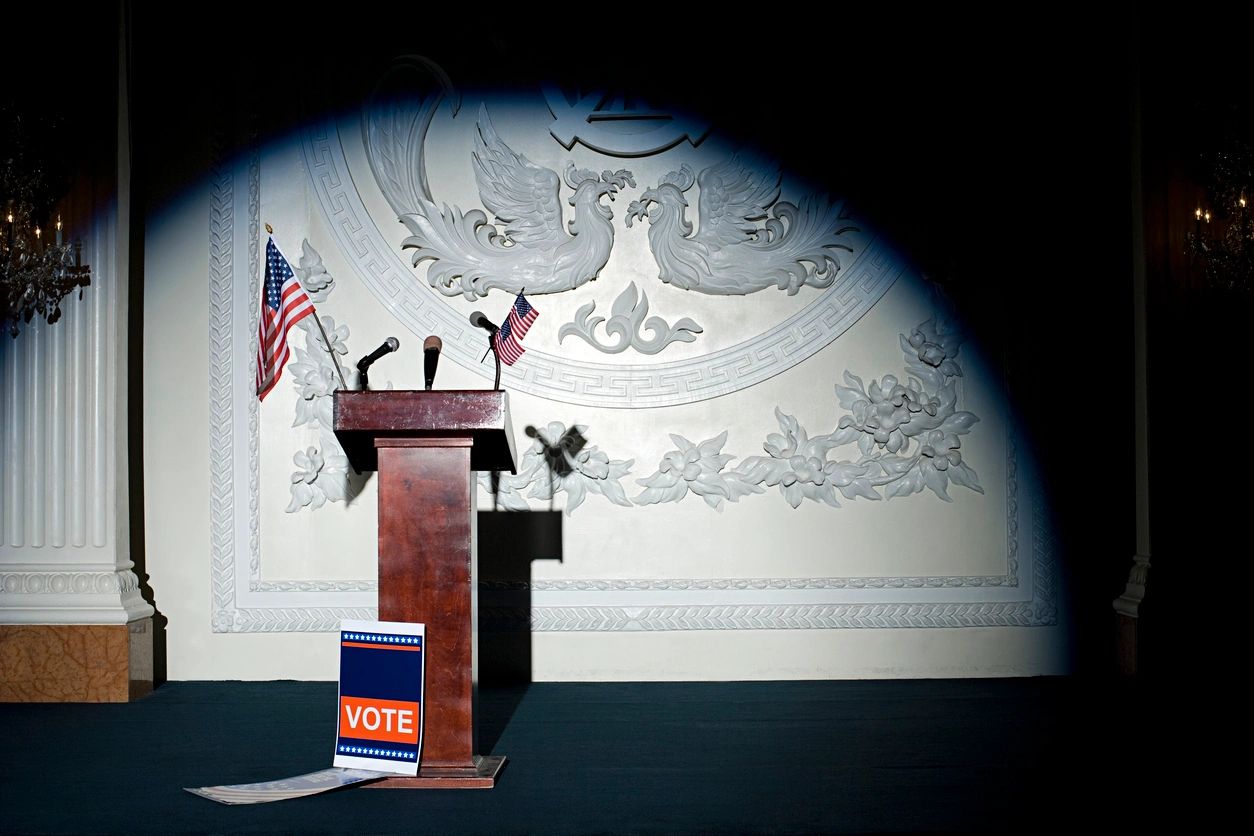How Psychology Impacts Who’s President
I am putting my overpriced degree to work here by writing about one of the few lessons I’ve taken away from it. That lesson was the importance of personality. Personality is often used incorrectly such as “my personality makes me love attention; is someone who needs everything perfect; is “science-minded”; or is someone who ‘goes with the flow’. These may be traits, but they are not how they are defined in a behavioural science sense and certainly do not categorize entire individuals. Rather the way this is defined is done using the psychometric analysis of ones characteristics and behaviours that guide one’s values, reactions, interests, relationships, drives and comfortability in an array of circumstances–a broad set of variables that all come together to form the individual. To date, these are best broadly broken down into 5 categories, commonly known as “The Big 5”. If you’re horrible at remembering things, try to remember OCEAN as an acronym that can help you break this down.
Openness (a persons draw to novelty, an active imagination (fantasy), their sensitive to aesthetics, attention to feelings, preference for adventure, intellectual curiosity, creativity & knowledge) In other words–> A desire to be open to new things.
Conscientiousness (a persons ability to regulate impulse control in order to engage in goal-oriented behaviours. It measures elements such as impulsiveness, organization, dutifulness, carefulness and diligence). In other words–> A desire to take a task seriously & do it well
Extraversion (a persons craving for social interaction, talkativeness, energetic, a large social network, outgoingness, crave centre of attention, seek greater stimulation from a broad set of experience) In other words–> A “people person” who loves “going out”.
Agreeableness (a persons gravitations toward behaviours perceived as kind, trustworthiness, focus on altruism, sympathetic, cooperative, warm, considerate, aiming for social harmony) In other words–>Someone who will bargain on your behalf rather than their own.
Neuroticism (a persons likelihood to experience negative affect, pessimism, guilt, loneliness, envy, depression, mood swings, anxiety, jealously) In other words–> The proclivity towards negative emotions and misery in life.
Each of these can be placed upon a spectrum. There is no “I am or I am not”. It’s a degree to which they are. Someone may be competitive and low in agreeableness but not as low as another; the latter being more distrusting, tough-minded, low in compliance, less motivated by emotions & desires of others. There’s an infinite number of combinations that one can have when you compile all of the 5 spectrums; that’s the beauty of why western civilization hold the individual as paramount. Each person is truly unique! And that’s one aspect that makes (or made) the West superior to other cultures.
But
What in the hell does this have to do with voting?
If you look at Canada’s or the United States’ voting results (pick a year) you’ll see something that holds pretty steady year to year. Atlantic provinces in Canada and New England states/13 colonies always vote “liberal or democrat”. Whereas inner provinces and state such as the Canadian prairies and USA Midwest always go “conservative or republican”. Interestingly, as you go further Westward, it goes back to liberal or democrat (British Colombia, Oregon, Washington, & California, jokingly named ‘Commie’fornia). So what’s going on here?
You’d think okay, new election, new candidates, let’s pick the best for us given our set of circumstances & problems; the assumption is that people are going to collectively make the most rational decision to the post important matters. But that’s not what happens. Even if huge groups could collectively act rationally, people vote according to their personality and they do so regardless of the economy, their prior voting, unemployment, of markets, regardless of the candidates!
So, what are the personality of these citizens? The citizens of the coast (those who vote democrat) score higher on traits of agreeableness & neuroticism whereas midwest citizens score higher on traits on conscientiousness & lower on openness.
And this makes sense if you think about it.
Back In Time
Let’s say your ancestors came from Ireland 150 years ago. It wasn’t a flight into Boston Logan International Airport. It involved working (sometimes almost a decade) for savings to afford the 1-12 week long boat ride to an unknown land, with new customs, new landscapes, maybe new speech, being instantly vulnerable to predators when you land. Your trip was nerve-wracking, unsure if the boat would sink and all your children would freeze to death or become lunch for the sharks. When it wasn’t turbulent you had to make peace with drunks, creeps, mentally disturbed folk from war, starvation or all of the above. Lice & disease was plentiful & there wasn’t anything for food to hold you over until you landed. When you landed (just hoping it actually was Boston) you had to register yourself and family like cattle and confess you possess no property, no firearms, no employment, no resources or known American relatives & can only afford what gold you have left after the expensive boat ticket.
Now imagine you score quite high on the neuroticism scale (likeliness to be sad, scared, anxious, depressed, vulnerable to bad emotion & feelings). What do you honestly feel the odds are that those people are going to UP their new life, following this experience, to move even FURTHER in-land to unknown territory?
Extremely low. If that trip didn’t do them in, surely a trip through the unknown woods, unsheltered fields, mountains would. So they naturally stayed.
But not everyone did. The ones are able to stomach that bumpy journey kept travelling inland to start a ranch, a family farm, to find gold, oil or coal to strike a fortune. These people sought large property to call their own and were able to handle the stressors as they invariably came about. They naturally settled on the best land & found the best they could. They were focused, determined to succeed even if it meant risking their life.
So the anxious neurotic person settled on the coast and the undeterred person wandered to the now midwest. Take a wild guess at how people with high neuroticism (& high agreeableness) tend to vote… Take a wild guess at how people with high conscientiousness (& low neuroticism) tend to vote… You’ve figured it out.
Research reliably shows that the most unhappy people are (politically) left-leaning, young men. I believe the instinct here is that liberals want to feel less stress, a sense of support, of community and this is providing by appointing the government/state to “look after them”. Even though laws come out of the barrel of a gun, the sensation people hear more laws is security. More security –> less stress –> good news if you’re sensitive to negative thoughts.
The same came be said about high agreeableness, those who are more compliant, obedient, altruism-oriented are more likely to support an initiative of bigger government which is in line with a liberal philosophy.
On the contrary, if one is not subject to stress and are conscientious in everything they do, they feel like they don’t need to be “looked after”. They’ve been doing their own thing since they first arrived a hundred years ago, there’s no need for intervention for them. Bringing a third party in & regulation just delays, disturbs and distorts the task at hand and this is why the midwest tends to vote Republican who traditionally have been for less & smaller government (now this is a fallacy, of course).
Additionally, Midwestern personalities (on average) tend to be lower in openness. It doesn’t jive that people would accept a party-man proposing all sorts of changes, laws, policies and quirks. Instead people keep to their own traditional, stricter ways, with less interference (again, not really the case anymore). This lower score in openness is one reason why most of the religious people in the United States are more in-land as opposed to the higher openness on the coasts (more likely to be agnostic).
Again these are averages, I’m not saying you are this or aren’t that… There’s plenty of overlap. However the extremes are what matter (the most neurotic vs. the least; the most conscientious vs the least) and given enough time these personality traits manifest themselves across the geography. It was those set of personality traits that allowed those relatives to gather together in those lands and subsequently vote together with the same values & ideals in mind.
This brings up the scary question–> If where I live, how I vote and my beliefs are predetermined by my personality, what do I have control over?
I’ll leave you to ponder…
Please share & view other posts!
#StayOnTheBall wherever you are in the world


